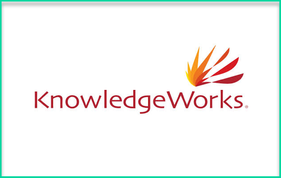
Specifically, the paper considers key attributes needed for success, including deep self-knowledge, emotional regulation and social awareness.
The workforce is already going through incredible change due to advances in artificial intelligence, machine learning, robotics and other forms of automation, Prince said. At the same time, companies are increasingly turning to freelancers and project-based hires, creating a gig economy in which fewer people hold traditional full-time jobs. In the future, jobs could require people to develop short-term, flexible skills to transfer frequently between jobs or tasks, rather than focusing primarily on the specific academic knowledge emphasized in today’s readiness measurements.
More flexible skills, such as those focused on social-emotional development, promise to help students become resilient, reflective and able to form positive connections and relationships. “The Future of Learning: Redefining Readiness from the Inside Out” explores three core skills that promote the social and emotional awareness needed to succeed in the future workforce:
1. Deep self-knowledge: Individuals will need continually to discover their own personal and professional strengths, weaknesses, passions and emotional patterns.
2. Emotional regulation: Workers will need to be able to recognize their own emotions, understand the triggers that create them, and move to more productive emotional states.
3. Empathy and perspective taking: People will need to be able to recognize others’ emotions and perspectives to help build inclusive, collaborative work environments.
By proposing a new foundation for readiness based on these core social-emotional skills, KnowledgeWorks hopes to work with education stakeholders to think toward 2040 to help all students develop the skills needed to succeed in the future workforce.
“Work and employment are constantly changing, and it’s crucial to think critically about what’s next,” KnowledgeWorks President and CEO Judy Peppler said. “KnowledgeWorks currently partners with districts throughout the country to build personalized learning environments that will help ready students for the future. This new research about what work in 2040 could look like has pushed our thinking even more, and we look forward to collaborating with educators, school leaders and district administrators to reflect on the skills our students will need to succeed.”
The paper dives deeper into concepts from KnowledgeWorks’ ten year-forecast, “The Future of Learning: Education in the Era of Partners in Code.” It surfaces insights from the ethnographic research, shares scenarios for what future work could look like, and highlights opportunities for education stakeholders to act today to prepare students for the future.
About KnowledgeWorks
KnowledgeWorks is focused on ensuring that every student experiences meaningful personalized learning that allows them to thrive in college, career and civic life. We develop the capabilities of educators to implement and sustain competency-based and early college schools, work with state and federal leaders to establish aligned policy conditions and provide national thought leadership around the future of learning.












